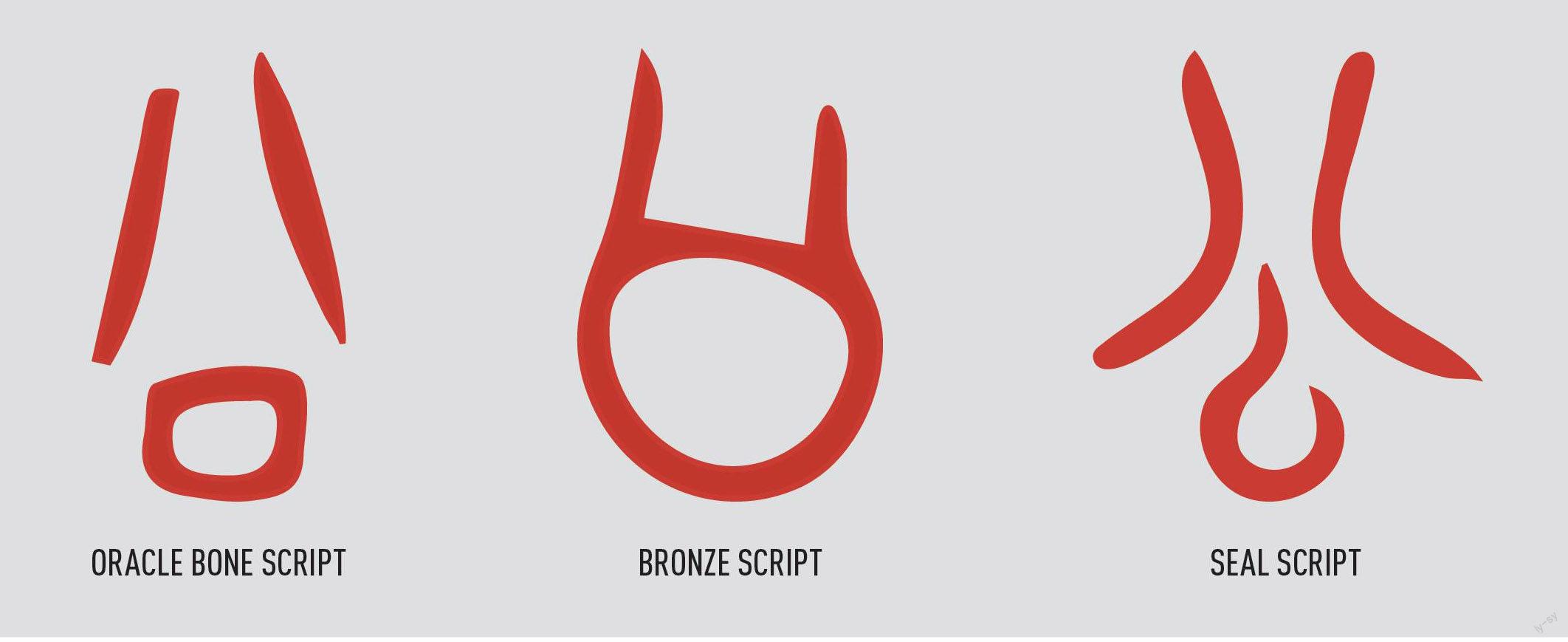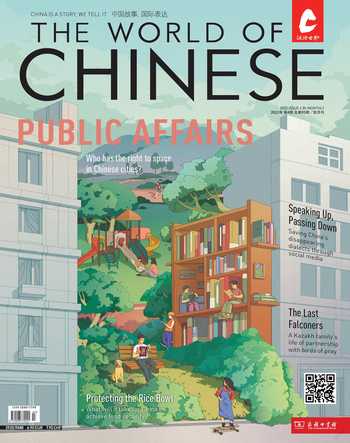On the Character: 公
2022-05-30WangSiqi
Wang Siqi

A character with the public interest at heart
大道之行,天下为公
Text by Huang Weijia (黄伟嘉) and Siyi Chu (褚司怡)
Imagine a society where everyone leaves their doors open. Here, people care not only for their own elders and children but also for everybody elses. Everyone is willing to contribute their labor for the public good, without an agenda or wish for personal gain. As for goods and money, people hate to see them go to waste, but no one sees the point of taking them for their own.
This is the ideal society that Confucius described to his disciple Yan Yan (言偃), according to theBook of Rites(《礼记》), one of the five classics of Confucianism. According to the sage: “when everyone shares a perfect ideal, the world belongs to the public (大道之行,天下为公Dàdào zhī xíng, tiānxià wéi gōng).” Here, the character 公 (gōng) means “public, communal.”
Shaped like a container with a handle on top, 公, according to one of the earliest Chinese dictionaries theAnalytical Dictionary of Chinese Characters(《说文解字》), means “to divide evenly.” The bottom part of the character, 厶, means private, while the 八 on top indicates opposition. “That which is the opposite of the private is 公,” the dictionary quotes Han Fei (韩非), a philosopher from the Warring States period (475 – 221 BCE), as saying.
The idea of “天下为公” is still relevant today. Chinas president Xi Jinping has invoked it as a societal ideal in his addresses on many occasions, including at the 19th National Congress of the Communist Party in 2017 and at the World Economic Forum in Davos the same year.
The character 公, meanwhile, has retained “public, communal” as its primary meaning. An object predicated by 公 belongs to the public: A 公園 (gōngyuán, public park) can be enjoyed by all, a 公厕 (gōngcè, public bathroom) is where anyone can go relieve themselves, and 公款 (gōngkuǎn, public funds) are not to be embezzled—otherwise it would be against public morality, or 公德 (gōngdé). Crimes, environmental pollutions, or pests can all be referred to as 公害 (gōnghài, public menace), if they threaten public safety or health.
An individual can also become public if they are, for example, a 公务员 (gōngwùyuán, civil servant) or 公知 (gōngzhī, public intellectual). They are in a position to provide service to society, but shouldnt seek personal gain in the name of public deeds, which is called 以公谋私 (yǐgōng móusī) or 假公济私 (jiǎgōngjìsī); nor should they exact personal revenge by public means, or 公报私仇 (gōngbàosīchóu).
In modern times, the idea of “public” expanded beyond the borders of a nation, and 公 today sometimes indicates “internationally shared.” Parts of the ocean that do not belong to any country are called 公海 (gōnghǎi, international waters), the Gregorian calendar is called 公历 (gōnglì), and a kilogram is 公斤 (gōngjīn).
公 can also mean “to make public.” If a clandestine affair is 公之于众 (gōngzhīyúzhòng, announced to the public), then it is no longer a secret between two people. If someone 公然作弊 (gōngránzuòbì, cheats openly) in an exam, they might have little regard for 公共秩序 (gōnggòng zhìxù, public rules and order) or 公共安全 (gōnggòng ānquán, public safety), sometimes abbreviated as 公安 (gōngān).
Justice (公正gōngzhèng) and fairness (公平gōngpíng)—things that are in the publics interest—are another common connotation of 公. To 秉公办理 (bǐnggōng bànlǐ) is to act justly, and to 公买公卖 (gōngmǎi gōngmài) is to buy and sell at fair prices.
People sometimes use 公 as a term of respect to address men of age. A venerable Mr. Zhang or Mr. Li could be called 張公 (Zhāng Gōng) or 李公 (Lǐ Gōng). Ones maternal grandfather is sometimes called 外公 (wàigōng).
The son of a noble person, in ancient times, was called 公子 (gōngzǐ), which is still used to address another persons son today. For example, to ask where ones son works, you can say, “令公子在哪儿高就 (Lìng gōngzǐ zài nǎr gāojiù)?” But be careful not to turn it into “公子哥儿 (gōngzǐgēr),” as this used to be a term for the sons of the rich and powerful who were out of touch with reality, and is now a scornful name for spoiled youngsters.
In the world of nature, the function of this character is much simpler: to tell the sex of a creature, with 公 as male, and 母 (mǔ) as female. Rooster is 公鸡 (gōngjī), a ram is 公羊 (gōngyáng), and a bull is 公牛 (gōngniú). The same simple rule applies to the names of many other animals, even aquatic ones like crabs and lobsters. 公 has many uses—as befitting its truly public character.
